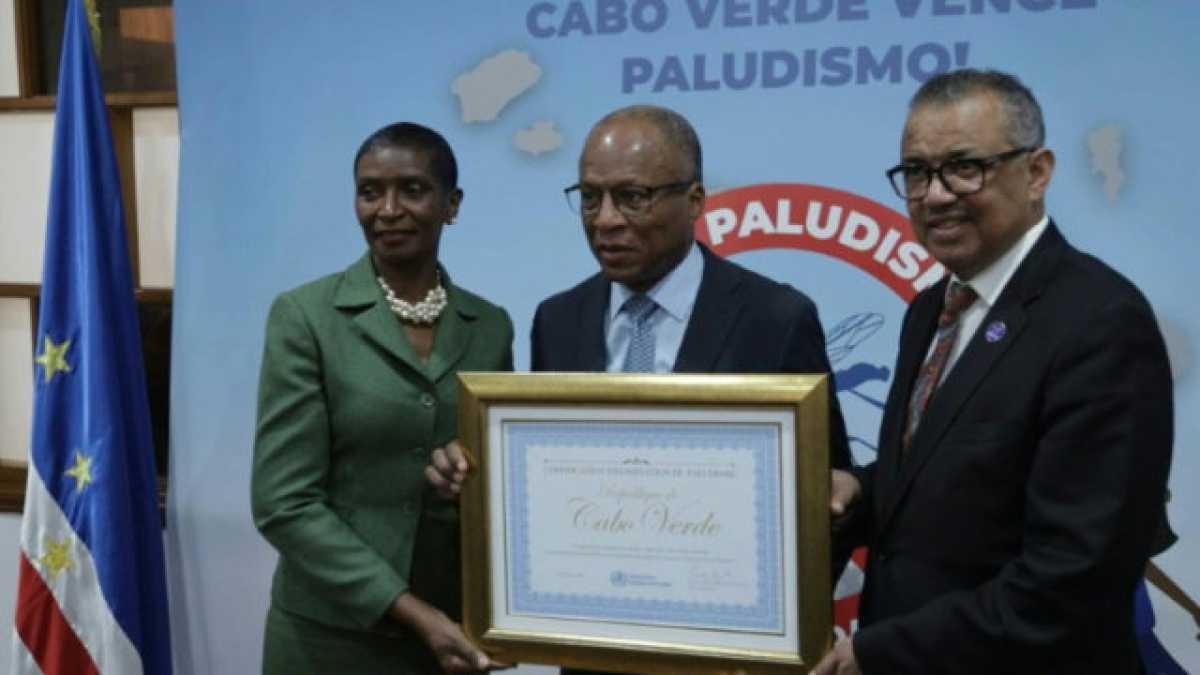Health
Cape Verde Becomes Africa’s Third Malaria-Free Country

Cape Verde, an archipelago off the coast of Senegal, has recently achieved the honorable distinction of being declared malaria-free by the World Health Organization (WHO). The island nation, comprising 10 islands with a population of over [population], becomes the third country in Africa to achieve this status, following Mauritius in 1973 and Algeria in 2019.
The elimination of malaria is a significant achievement, considering that the disease has claimed over 600,000 lives globally in [year]. As experts in malaria prevention and control, the UP Institute for Sustainable Malaria Control at the University of Pretoria sheds light on Cape Verde’s journey to eradicate the disease.
Before 1950, Cape Verde was heavily impacted by malaria, with all 10 islands being affected by the disease. Severe epidemics led to more than 10,000 annual cases and 200 deaths. It was not until targeted interventions were implemented that progress was made.
In 1967, Cape Verde successfully ended nationwide transmission of malaria thanks to indoor residual spraying with insecticides such as DDT. Larviciding and active case detection were also part of the comprehensive approach. However, the interruption of indoor residual spraying campaigns in 1969 triggered a resurgence of the disease, with a local transmission outbreak occurring in Santiago in 1973, followed by a major epidemic in 1977.
A second attempt to eliminate malaria began in 1978, and by 1983, transmission interruption was achieved. However, case numbers still persisted, mainly in Santiago and Boa Vista islands, posing a threat to tourism. In response, Cape Verde adjusted its national health policy and prioritized expanded diagnosis, early and effective treatment, and the management of all cases.
While on track to eliminate malaria, Cape Verde faced a setback in 2017 when it recorded the highest number of cases since 1991. However, the country swiftly adjusted its strategy, focusing on vector control and targeting affected neighborhoods and malaria-prone communities. As a result, transmission was successfully interrupted for four years.
The WHO reported that globally, there were 249 million malaria cases and 619,000 malaria-related deaths in [year]. The African region accounted for 94% of all cases and 96% of all deaths. The certification of malaria-free status requires countries to meet stringent criteria, including no locally transmitted cases for at least three consecutive years and demonstrating the ability to prevent disease reintroduction.
The WHO’s efforts to eliminate malaria by 2025 focus on 25 countries, with the recent success stories including Belize, Malaysia, Timor-Leste, Saudi Arabia, Bhutan, and Suriname. However, several countries in the Africa region, such as Botswana, Eswatini, South Africa, the Comoros, and São Tomé and Principe, experienced setbacks in malaria control in [year], demonstrating the need for continued efforts and vigilance.
Cape Verde’s achievement of becoming malaria-free is not only a personal milestone but also has overarching importance for the country’s economy. With tourism playing a vital role, the elimination of malaria can potentially attract more visitors, contributing to economic growth. Furthermore, the infrastructure established for malaria elimination also benefits the country’s health system and its ability to combat other mosquito-borne diseases, such as dengue, which can also impact tourism.
Cape Verde’s successful journey to become malaria-free serves as a powerful reminder for the global malaria elimination community to persevere and continue striving towards a world free from malaria.












